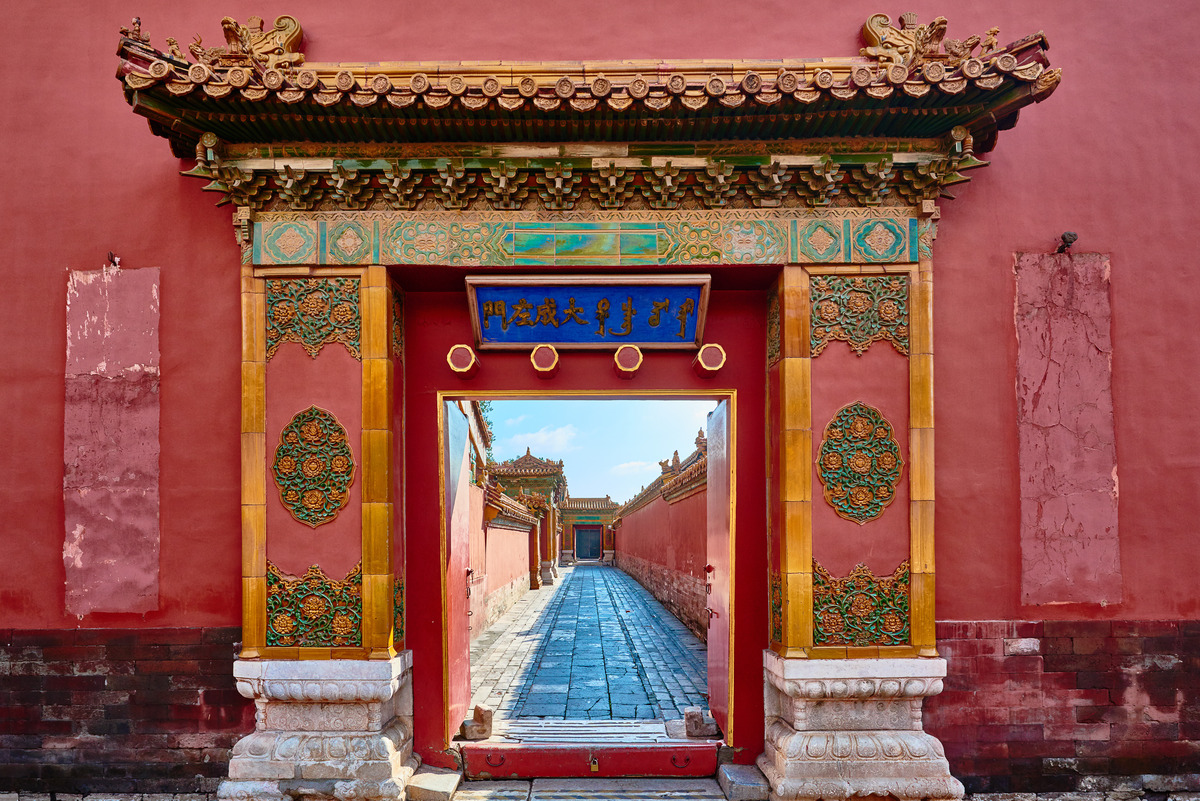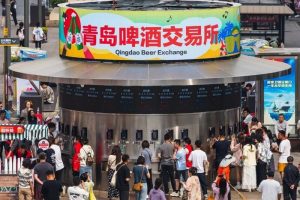
Chinese is a language rich in regional dialects and accents (for more information you can read our Introduction to Chinese Dialects blog article). The Beijing dialect refers to the variety of Mandarin Chinese spoken in Beijing and its surrounding areas. The Beijing accent is the distinct way in which Beijingers speak Standard Mandarin. One of the most notable characteristics of the Beijing accent is the use of the ‘Erhuayin’ or the exaggerated ‘er’ sound that is added to many words and expressions.
Generally speaking, the Beijing dialect (sometimes called Beijingnese) is the dialect that is spoken in urban Beijing. But even within the city, there are variations. Residents in the southern suburbs, often poorer and working-class areas, may have a stronger accent compared to those in other districts where the accent is more refined. Additionally, there’s a distinction between the “Old Beijing dialect” and the “New Beijing dialect,” each with its own unique characteristics.
The term “Beijing dialect” can also sometimes refer to the Northern Chinese branch of languages. Many Chinese consider that the dialects spoken in Hebei and parts of Liaoning provinces are so similar to Beijing Mandarin as to be much the same.
While Standard modern Chinese is largely based on the pronunciation, vocabulary, and grammar of Northern Chinese, the Beijing dialect retains unique characteristics that set it apart. These unique features are exclusive to Beijing and can’t be found in standard modern Chinese.
The Beijing Dialect: In Numbers
Number of speakers: This is difficult to estimate, but numbers are certainly declining. The Beijing dialect is constantly changing and becoming more of a hybrid between the old Beijing dialect and Mandarin. Many young people in Beijing can’t speak it or even understand it.
Number of words in the Beijing Dialect Erhua Dictionary (北京话儿化词典): 7,000 words
Number of words and phrases in the recently published Beijing Dialect Dictionary (北京话词典): 3,250 single-character words, and 16.400 multi-character phrases
Beijing dialect vs Mandarin
Undoubtedly the biggest difference between the Beijing dialect and standard Mandarin is the use of dialect words and expressions that are unique to Beijing. Some examples include:
| Character | Pinyin | Meaning |
| 回头儿 | Huítóu’r | It’s possible, maybe |
| 踮儿了 | Diǎn’rle | to go away or to run away |
| 大法儿了 | Dàfǎ’rle | Used for emphasis or exaggeration |
| 能个儿 | Néng gè’r | to describe someone who is capable, accomplished, or skillful |
| 今儿个 | Jīn’r gè | Today. (Note: similarly Beijingers will also say 明儿个 (míng er gè) for tomorrow, and 后儿个 (hòu er gè) for later. |
| 寻摸 | Xún mo | to look for something |
| 遛弯 | Liùwān | go for a walk (it literally means to wander) |
| 嘛 | Ma | Used in sentences like 你干嘛去? where are you going? 你干嘛? what are you doing? |
| 得 | Dé | okay, fine |
| 跟 | Gēn | Sometimes it replaces 在 as in to be located. For example 你的朋友跟哪儿呢?Where are your friends? |
| 翻扯 | Fān chě | Literally “turn over” but in the Beijing dialect means to be anxious or angry |
| 把不住边 | Bǎ bù zhù biān | Can mean talking nonsense, and also describes someone who loves to talk |
| 老家儿 | Lǎojiā’r | In standard Chinese it means ‘hometown’ but in Beijing dialect, it means ‘parents’ |
| 哪一出儿 | Nǎ yī chū’r | What’s the matter? (literally, ‘Which one is coming out?’ |
| 完菜 | Wáncài | Finished. It literally means “finished the dish”, but the suffix 菜 is commonly used in the Beijing dialect with no specific meaning. |
| 羊上树 | Yáng shàng shù | Describes people who make things difficult for others by asking them to do things, it literally means “sheep climbing trees” |
These are just a fraction of the hundreds of unique expressions found in the Beijing dialect, although many have fallen into disuse over the years.
Another noticeable characteristic of the Beijing accent is Beijingers love to add the 儿 or ‘er’ sound to the end (usually but not always) of words. This is often referred to as 儿化音 (or Erhuayin). Just looking at the list of Beijing expressions above, we can see how many have the added 儿 sound. Beijingers use this to express smallness (家雀儿,jiāqiǎo’r, sparrow), affection (老伴儿, lǎobàn’r, wife), contempt or disgust (光棍儿, guānggùn’r, for a loner or a bachelor, ie there’s something wrong with him if he can’t find a wife). Sometimes it can slightly change the meaning of a word. For example, 小小子儿 (xiǎo xiǎo zǐ’r, little boy) indicates the child is a little bit naughty or clever. Or 头儿 (tóu’r); adding the ‘er’ changes the meaning from ‘head’ to ‘boss’ or ‘leader’.
The erhuayin is not the only suffix that the Beijing dialect adds to words. In the old Beijing dialect, Beijingers would add sounds to common adjectives to give their speech more colour. For example, instead of just saying 甜/tián for “sweet” they would say 甜巴丝儿丝儿/tián bā sī’r sī’r, or for “hot” 热乎乎儿/rèhū hū’r!
Beijingers are also notorious for speaking rapidly and ‘swallowing’ sounds by running syllables together. For example, the phrase “不知道” meaning “I don’t know” (pinyin “Bù zhīdào”) sounds more like “奔儿道” (pinyin “bēn’r dào”). In some two-syllable words, the Beijing dialect will place greater stress on the first syllable than the second, giving the Beijing dialect a distinct sound. In some words that function as both a noun and a verb – 言语 “speech/say something” and 花费 “expense/spend” for example – the word is stressed when used as a verb but unstressed when used as a noun.
There’s a saying in Beijing, “渴不死东城,饿不死西城, which means “you won’t die of thirst on the East Side (Dongcheng district) and you won’t die of hunger on the West Side (Xicheng district)”. This is because in the east, the common Beijing dialect greeting is “喝了么您呢?” or “Have you had anything to drink yet?, whereas on the West Side, the preferred greeting is “吃了么您呢?” or “Have you eaten yet?”
The Beijing accent is much appreciated by other Chinese for its swagger and humour, and its colourful vocabulary. People like to speak with a Beijing accent for humorous effect, and many crosstalk routines (crosstalk is the Chinese version of stand-up comedy) make great use of the Beijing dialect.
A History of the Beijing Dialect
The Beijing dialect, as we know it today, has been shaped by a variety of influences throughout history. It is widely believed among scholars that its roots can be traced back to the Dadu dialect during the Yuan Dynasty, and further developed during the Ming and Qing Dynasties with the incorporation of the Nanjing dialect and Mandarin. Additionally, interactions with minority languages from invaders, including Manchu and Mongolian, and settlers from other regions have left their mark on the Beijing dialect.
During the Qing Dynasty, despite efforts to centralize power, the lack of unified language standards led to communication challenges and debates over pronunciation. In the Republic of China era, efforts to promote a unified language intensified, leading to the establishment of a standardized pronunciation known as “Old Chinese Pronunciation” in 1918. This pronunciation, rooted in the Beijing dialect but incorporating characteristics from other regions, aimed to address communication barriers.
With the founding of the People’s Republic of China in 1949, promoting a common national language became a priority. Because Beijing was the capital city and seat of power and influence, it made sense to use the Beijing dialect as the foundation for Putonghua. The introduction of the pinyin system in the 1950s, which aimed for a standard pronunciation across China, further reinforced Mandarin (and thus Beijing) supremacy.
The Beijing Dialect’s Impact on Chinese Culture
The Beijing dialect has had an immense impact on Chinese language and culture. One of China’s most famous novels, Dream of the Red Chamber, written in the 18th century, was written in the Beijing dialect rather than Classical Chinese. The famous 20th-century writer, Lao She, was another who used his native Beijing dialect to add flavour to his writing.
By the early 19th century the Beijing dialect had replaced the Nanjing dialect as the common language of the Chinese ruling elite and official court language along with the Manchu language. As noted above, the Beijing dialect then became the foundation for a national language in the 20th century.
Beyond literature and official language, the Beijing dialect has had a big influence on popular culture in China. Beijing has long been the headquarters of the Chinese film and television industries on the Mainland. Consequently, it is one of the more commonly heard dialects. Many performers of crosstalk hail from Beijing or the northern regions, leading many Chinese to associate crosstalk with the Beijing accent.
The Beijing Dialect Now
As Beijing became an increasingly modern and international city, the Beijing dialect has become less and less common. This mirrors the fate of many dialects around the world, including those in China. The Beijing dialect has also been affected by the influx of millions of migrants from other regions of China. The demolition of the old hutong courtyards, replaced by towering skyscrapers, has also had an impact, as residents have become more isolated than they were in the communal days of the hutongs.
There is a growing movement in China to preserve the Beijing dialect (not to mention the hundreds of other endangered Chinese dialects) particularly because of its important cultural significance. Some Chinese linguists have suggested teaching it in classrooms. However, due to the Chinese government’s policy of promoting standard Mandarin throughout the country, this initiative has yet to get off the ground.
Do I Need to Learn the Beijing Dialect to Live in Beijing?
The answer is a resounding no, unless you have a particular passion for dialects. As mentioned above, the dialect is spoken mostly by older Beijingers. There is no standardised version of the dialect, with variations in words and expressions across different areas. Finding suitable learning resources, especially in English, will also be a challenge. In Beijing, Mandarin is the universal language spoken by everyone.
However, the study of dialects is a growing worldwide movement, not only for academic reasons but also for enjoyment and general curiosity. Dialects are in growing danger of extinction, so if you have the time and inclination, learning the Beijing dialect could be your contribution to protecting the world’s linguistic diversity. By doing so, you’ll help enable this unique dialect to continue to exist for future generations to enjoy.
If you are interested in learning about another popular Chinese dialect, Shanghainese, you can read all about it in this blog article.
Author
Nick Dennis

Nick is an English teacher who has taught English as a Foreign Language in China, Italy and France. He has a Bachelor of Arts (Modern Languages), majoring in French, from the University of New South Wales. He loves travel, reading and football and, of course, learning languages. Four years ago, Nick and his wife co-founded an online English language school targeted at the Chinese market (since sold to Chinese investors). He has also ghost-written the autobiography of a well-known Australian horse trainer.























